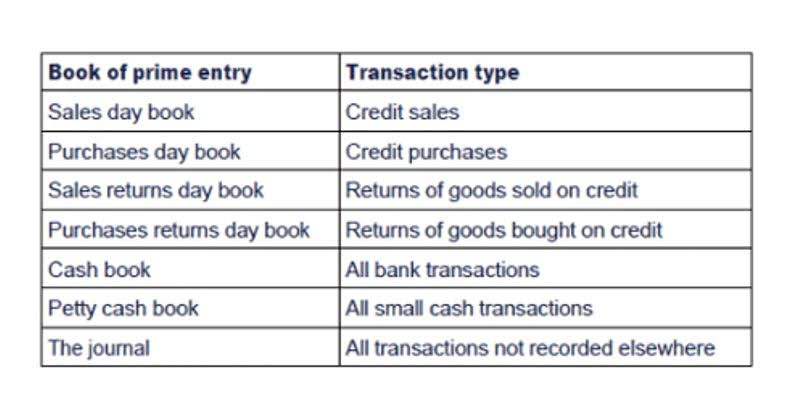
The cash over and short account is an QuickBooks expense account, and so is usually aggregated into the “other expenses” line item in the income statement. A larger balance in the account is more likely to trigger an investigation, while it may not be cost-effective to investigate a small balance. A sample presentation of the Other Expenses line item in an income statement appears in the following exhibit. Debit your cash short and over account in your journal entry by the amount of cash short. Alternatively, credit your cash short and over account by the amount of cash over.

How does the cash over and short journal entry work?
Suppose a retail business starts each day with a cash balance of 200 in the cash register. During the day sales of 1,400 are entered into the register, and a cash count at the end of the day shows cash of 1,614 as summarized below. A cash over normally occurs in a retail accounting environment when HOA Accounting the sales are reconciled to the cash receipts in the register at the end of the business day.
Cash Over Journal Entry Example
- Cash over and short discrepancies can influence the income statement by either increasing or decreasing profits due to the misalignment of reported sales figures and actual cash collections.
- The primary use of the cash over and short account is in cash-intensive retail or banking environments, as well as for the handling of petty cash.
- This can arise from various factors, including human mistakes, theft, or miscalculations.
- The customer unwittingly gave me $96 for the purchase, an error we both failed to catch.
- Inaccuracies stemming from cash over short incidents can damage a company’s reputation.
- Businesses use a temporary account, often named “Cash Short and Over” or “Cash Over and Short,” to record these discrepancies.
If the cash in the register is more than the sales there is said to be a cash over. The importance of detecting and addressing cash-over-short discrepancies becomes even more significant when considering the potential implications for banking institutions. A misrecorded balance can impact financial ratios used by investors, such as current ratio, quick ratio, and return on assets (ROA). Moreover, these errors may lead to regulatory concerns if the bank fails to adhere to required reserve ratios, potentially triggering fines or even legal action. The cash short/over account is an expense account in the income statement of the business. Suppose a retail business starts each day with a cash balance of 100 in the cash register.
Cash Shortage Journal Entry Example

A series of cash overs and shorts may be a sign of theft or other problems in the company. Alternatively, if there had been too much cash in the petty cash box (a rare condition indeed!), the entry would be reversed, with a debit to cash and a credit to the cash over and short account. The cash overage journal entry is one of many bookkeeping entries used in accounting, discover another at the links below.
By closely monitoring and analyzing their cash-over-short accounts, firms can identify any potential is cash short and over an asset issues and take corrective measures, ensuring a more transparent financial reporting process. In summary, understanding the root causes of cash over short incidents is vital for companies to effectively manage their cash and maintain an accurate financial representation of their business operations. Over and short—often called “cash over short”—is an accounting term that signals a discrepancy between a company’s reported figures (from its sales records or receipts) and its audited figures. The term also is the name of an account in a company’s general ledger—the cash-over-short account. A controller conducts a monthly review of a petty cash box that should contain a standard cash balance of $200.
- Subtract the amount by which you need to replenish the account from the total amount of your vouchers.
- He has been a manager and an auditor with Deloitte, a big 4 accountancy firm, and holds a degree from Loughborough University.
- “Cash short” occurs when the physical cash counted is less than accounting records indicate.
- From an accounting perspective, a cash shortage is classified as an expense.
- Regular cash reconciliation is vital for businesses to maintain accurate financial statements and uphold financial integrity.
- This expense is treated as a miscellaneous expense and presented in the income statement as a general and administrative expense section.
What is the Journal Entry to Record a Cash Overage?

The net balance, whether a net shortage or a net overage for the period, ultimately appears on the company’s income statement. Common reasons for cash-over-short discrepancies include human error, employee negligence, or internal tampering. Cashiers or tellers might miscount cash received, record incorrect sales prices, or make other errors that create a disparity between reported sales and actual collections. A cash over and short situation can be just as impactful on banking institutions as in retail businesses. Imagine that a teller at a local bank miscounts cash, resulting in a discrepancy between the recorded transactions and the actual amount of money present.
- In this case one balance sheet asset (cash), has been increased by 1,414 when the cash is banked.
- Yes, it is an income statement account used to record cash variances that may impact a company’s profits in its income statement.
- Cash overages are normally recorded in a separate income statement expense account often referred to as the cash over/short account.
- Cashiers or tellers might miscount cash received, record incorrect sales prices, or make other errors that create a disparity between reported sales and actual collections.
- It is essential to acknowledge that this term primarily applies to businesses dealing extensively with cash transactions, such as retail outlets and banking institutions.
Unpacking What is Cash Short and Over and Its Crucial Role in Financial Management

The cash-over-short account serves as an essential tool for detecting problems in financial reporting and accounting procedures by documenting instances where cash levels do not align with recorded transactions. This account allows companies to analyze discrepancies, implement better controls, and make improvements to prevent future occurrences. Yes, it is an income statement account used to record cash variances that may impact a company’s profits in its income statement. The cash-over-short account is classified as a detective control within accounting, allowing companies to investigate and address issues like fraud or errors contributing to the discrepancy.
How Cash Shortages Are Classified
During the day sales of 1,500 are entered into the register, and a cash count at the end of the day shows cash of 1,588 as summarized below. In financial management, cash short and over is categorized as a miscellaneous expense or income, depending on whether it is a shortage or an overage. Businesses must accurately classify these discrepancies to reflect their actual financial performance. Internal tampering could cause a business to be over and short in its accounting.

Recent Comments